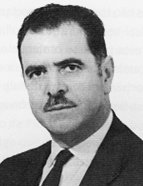

................................
He adopted a Marxist line of analysis bringing to interpretation, in particular of Contemporary History, a conceptual framework that was rooted both in the perspectives of the utopian socialists who he studied in great depth and in the views of Marx and particularly Engels when applied to the becoming of our contemporaneity. In his explanation for the introduction of liberalism in Portugal, for example, he claimed that “it was not only a political, economic and military struggle against the aristocracy of the Old Regime; there were also social struggles and it is precisely these that form the backdrop to the age”. In fact, both thematically and analytically, such an interpretative perspective of history was in tune with his own ideas which had been cemented in his academic exchange with the historians who had consolidated his education in France.
In the same period (1976 to 1978) he was a member of the Consultative Council for the Social Sciences and Humanities at the National Institute for Scientific Research (INIC) where, in addition to an important role in awarding scholarships for researchers in the area of Contemporary History, he managed to obtain the conditions and terms needed to publish the “Revista de História” (History Review) associated to the Centre he had set up and whose first issue came out in 1979. This sense of sharing, incentive and generosity was clearly expressed when on 12 July 1991 (the year he became Emeritus Professor) he formalised his gift to the University of Minho and the Braga Public Library of a series of documents of a political nature, his literary correspondence and documents relating to his personal and academic life as well as study and research materials referring to the 19th and 20th centuries. At the same time, the University of Minho agreed to award through its Cultural Council an annual Contemporary History Prize aimed at encouraging academic research among young historians. Meanwhile, on 10 June 1990, he had been decorated with the Ordem da Liberdade (Order of Liberty) which he received in Braga during the commemorations for the Day of Portugal, Camões and the Portuguese Communities from the hands of the President of the Republic, Mário Soares. Finally, a word about some of the national and international meetings and conferences he participated in. Among these were: Meeting of European Historians promoted by the Hungarian-Italian Forum (Budapest, 1976); Third Meeting of Portuguese and Soviet Historians (Leningrad, 1988); International Symposium of Historians (Vienna, 1988); 26th International Conference of Historians of the Workers’ Movement (Linz, 1989 and 1990). In Portugal we can see from his university Activity Reports that he gave dozens of papers sponsored by the most diverse entities. Among the most important societies he was a member of were the Portuguese Society for 18th Century Studies, the Association for the Defence, Study and Divulgation of Cultural Heritage (ASPA, Braga), the Association of Journalists and Men of Letters of Porto (with positions on the Literary Board), the Société Française des Lusitanistes de l’Enseignement Supérieur (Poitiers), the Portuguese Writers’ Association, the Portuguese Philosophy Association and the Association of History Teachers.
